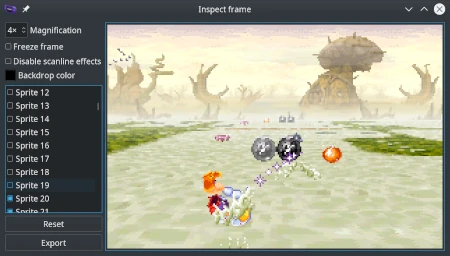Last Updated on: 25th December 2023, 12:58 pm
Web site: mgba.io
Category: Emulators
Platform: Linux, OS X, Windows, BSD, Wii, PlayStation, Nintendo
License: MPL
Interface: GUI
Wikipedia:
First release: 2013
mGBA – an emulator for running Game Boy Advance games. It aims to be faster and more accurate than many existing Game Boy Advance emulators, as well as adding features that other emulators lack. It also supports Game Boy and Game Boy Color games.
The project started in April 2013 with the goal of being fast enough to run on lower end hardware than other emulators support, without sacrificing accuracy or portability.
mGBA will run on mostly any computer from the last decade, as well as several additional platforms: Windows (Vista or newer), macOS, Linux, *BSD, Nintendo 3DS (New 3DS is required for GBA games), Nintendo Switch, Wii, PlayStation Vita.
Features:
– Highly accurate Game Boy Advance hardware support[1].
– Game Boy/Game Boy Color hardware support.
– Fast emulation. Known to run at full speed even on low end hardware, such as netbooks.
– Qt and SDL ports for a heavy-weight and a light-weight frontend.
– Local (same computer) link cable support.
– Save type detection, even for flash memory size[2].
– Support for cartridges with motion sensors and rumble (only usable with game controllers).
– Real-time clock support, even without configuration.
– Solar sensor support for Boktai games.
– Game Boy Camera and Game Boy Printer support.
– A built-in BIOS implementation, and ability to load external BIOS files.
– Turbo/fast-forward support by holding Tab.
– Rewind by holding Backquote.
– Frameskip, configurable up to 10.
– Screenshot support.
– Cheat code support.
– 9 savestate slots. Savestates are also viewable as screenshots.
– Video, GIF, WebP, and APNG recording.
– e-Reader support.
– Remappable controls for both keyboards and gamepads.
– Loading from ZIP and 7z files.
– IPS, UPS and BPS patch support.
– Game debugging via a command-line interface and GDB remote support, compatible with Ghidra and IDA Pro.
– Configurable emulation rewinding.
– Support for loading and exporting GameShark and Action Replay snapshots.
– Cores available for RetroArch/Libretro and OpenEmu.
– Community-provided translations for several languages via Weblate.
– Many, many smaller things.

